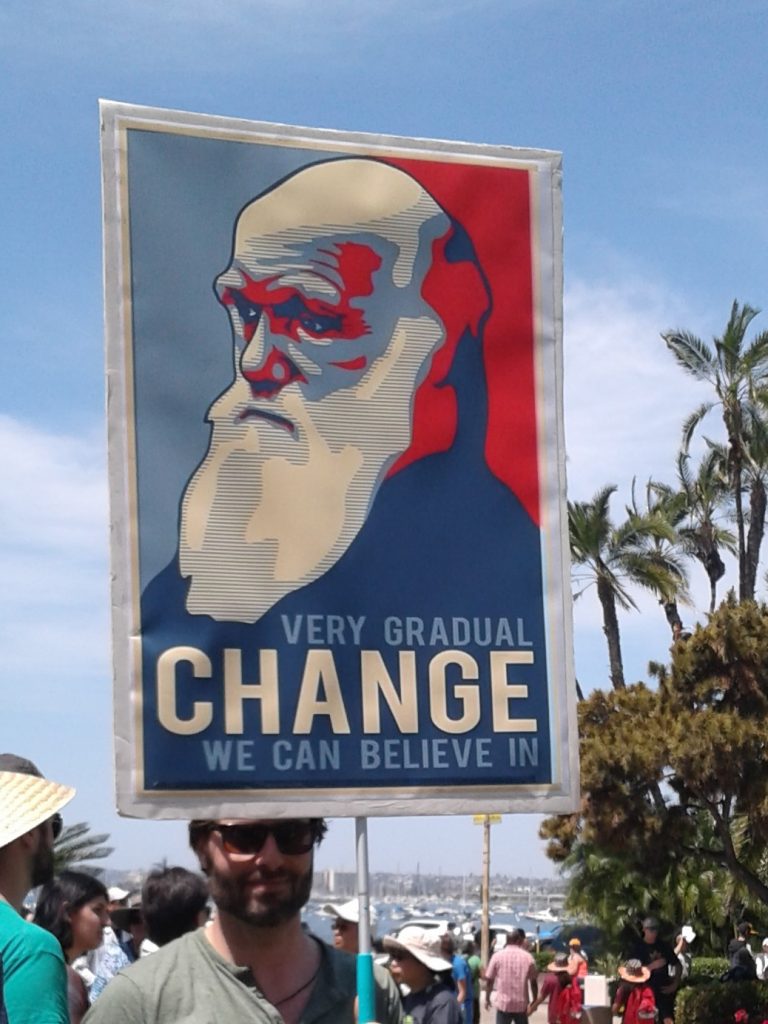
Just got home from the San Diego March for Science. Not as huge as the Women’s March, but displaying the same defiant wit: ‘Stop Truth Decay!‘ ‘Science is not a Liberal Conspiracy.‘ ‘Science is Magic that Works.‘ ‘So Severe the Nerds are Here.‘ From the Salk Institute: ‘Got Polio? Me Neither.‘ Some of the signs linked this demo with the women’s march: ‘I’m with Her,‘ the arrow pointing to a picture of the earth; ‘Science grabs women by the cerebral cortex.’
UCSD’s V. S. Ramachandran was the first speaker, and talked about science as poetry, as creativity, as the ultimate humanistic endeavor. It was an inspiring speech and an inspiring event.
I got an email from the President of the History of Science Society the other day announcing that HSS had, after much debate, decided to support the March for Science. The statement is a tad mealy-mouthed but ends on a rousing note:
The study of the history of science demonstrates that science is a human enterprise, deriving strength both from the diverse cultures of scientific practice and the faithful application of shared methods of evidence-based inquiry. In the past, science has undeniably advanced collective knowledge. When it is responsive to public concerns, it serves the common good. On these grounds, the History of Science Society heartily endorses the Core Principles of the March, which affirm a commitment to the highest ideals of science in service of global society.
 Other historians of science have weighed in more cogently on the significance of these marches. Naomi Oreskes, Robert Proctor and David Kaiser note in the Washington Post that American scientists have been politically engaged before, most notably against nuclear armaments, but the difference here is the sense that the pursuit of truth itself is under threat.
Other historians of science have weighed in more cogently on the significance of these marches. Naomi Oreskes, Robert Proctor and David Kaiser note in the Washington Post that American scientists have been politically engaged before, most notably against nuclear armaments, but the difference here is the sense that the pursuit of truth itself is under threat.
The interesting question for Science Studies is how to be politically engaged without being nihilistic about the possibility of scientific progress, how to stand with our colleagues at Scripps and the Salk and defend what they do while at the same time holding onto the core values that got us into this game in the first place. UCSD’s Science Studies program, for all its many faults, is a place where the most reverential philosophies of particular sciences and the most damning post-colonial critiques of science in general have had to rub shoulders. It’s not comfortable, it’s not pretty, it doesn’t resolve anything, but it does demand an open mind. Can we develop an epistemology of such open-mindedness, something that is rigorous, non-dogmatic, flexible, and value driven? Can we investigate the interface between the extremes? Maybe we can at least try…gradually…
